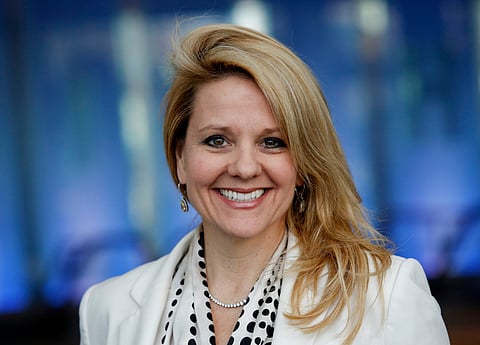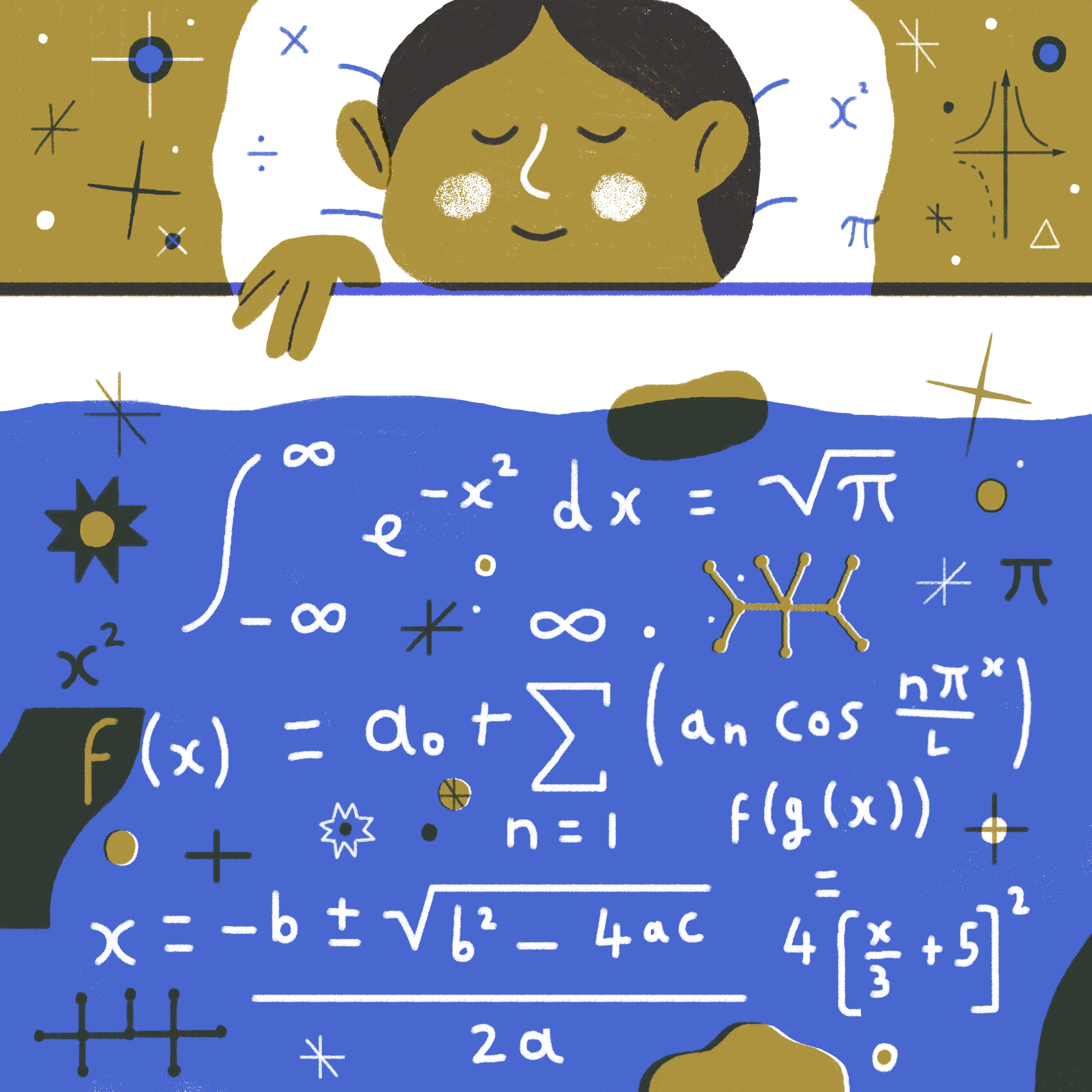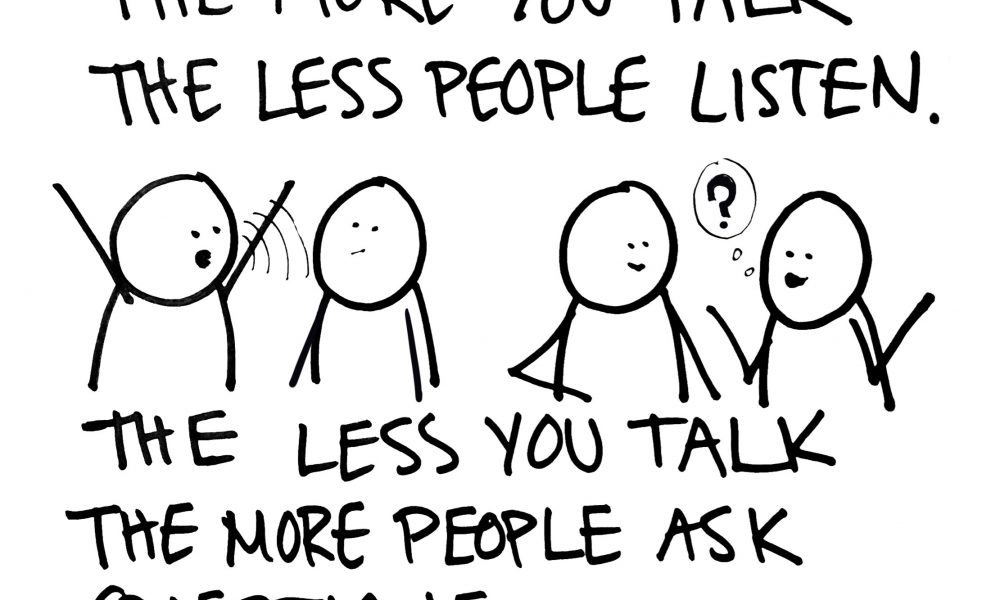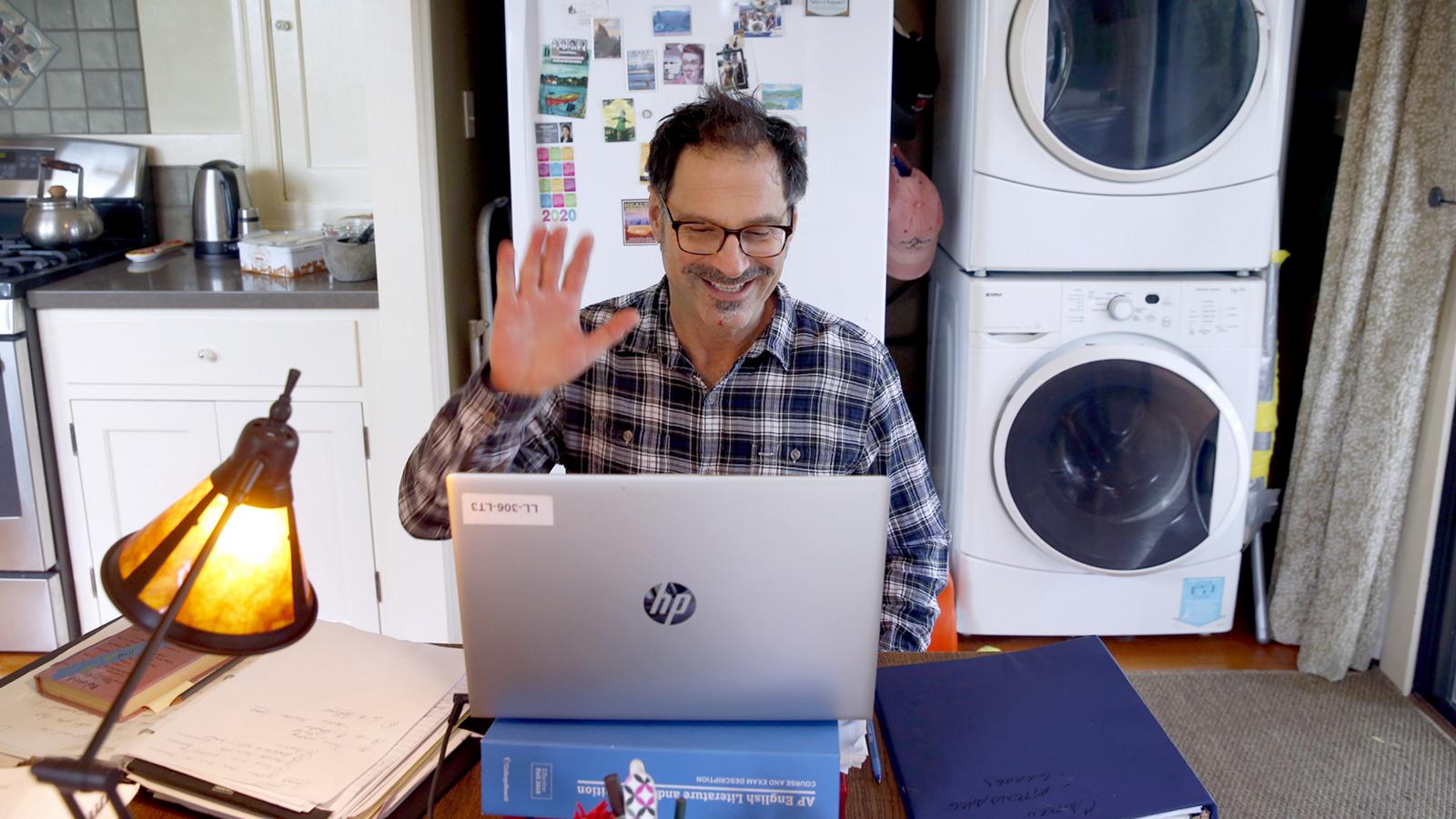   
CEO Picks - The most popular editorials that have stood the test of time!
Google's 7-Step Process to Delegating Tasks That Any Manager Can Use
 The best Google managers empower their teams and do not micromanage. The best Google managers empower their teams and do not micromanage.
This idea came in at No. 2 on Google's top 10 list of effective manager traits. If you haven't heard the story, Google in an effort to prove that bosses weren't necessary, ended up finding the exact opposite -- managers not only matter, but they can significantly influence the performance of their teams. But they didn't stop there. After realizing that managers were important, they embarked on a quest to uncover all the behaviors that made some more effective than others. The initiative became known as Project Oxygen.
Although the other nine behaviors are important, I would argue that empowering teams (without micromanaging) is the most crucial. Without a sense of ownership and connection to their work, it won't matter if employees have the right skills, access to coaching, or collaboration opportunities. They need the motivation to perform before these other aspects will come into play.
Continued here
|
How Lego Became The Apple Of Toys
 About a decade ago, it looked like Lego might not have much of a future at all. In 2003, the company - based in a tiny Danish village called Billund and owned by the same family that founded it before World War II - was on the verge of bankruptcy, with problems lurking within like tree rot. Faced with growing competition from video games and the Internet, and plagued by an internal fear that Lego was perceived as old-fashioned, the company had been making a series of errors. Day-to-day management had been handed in 1998 to a "turnaround expert" with no toy background who continued to live in Paris, as business writer David C. Robertson outlines in his 2013 Lego history, Brick by Brick. There were disastrous detours away from the core experience, including the abysmal morning cartoon Galidor, and experiments with bigger, more macho minifigures with a line called Jack Stone. The company kept opening Legoland theme parks around the world, despite having limited expertise in hospitality. Sales of several of Lego's most successful products, including Lego's Star Wars and Harry Potter lines, bobbed up and down based on movie release schedules over which Lego had no control. And the company wildly increased the number of products it released each year, resulting in a dreadful 2002 Christmas season, when major retailers ended up with around 40% of their Lego stock unsold. About a decade ago, it looked like Lego might not have much of a future at all. In 2003, the company - based in a tiny Danish village called Billund and owned by the same family that founded it before World War II - was on the verge of bankruptcy, with problems lurking within like tree rot. Faced with growing competition from video games and the Internet, and plagued by an internal fear that Lego was perceived as old-fashioned, the company had been making a series of errors. Day-to-day management had been handed in 1998 to a "turnaround expert" with no toy background who continued to live in Paris, as business writer David C. Robertson outlines in his 2013 Lego history, Brick by Brick. There were disastrous detours away from the core experience, including the abysmal morning cartoon Galidor, and experiments with bigger, more macho minifigures with a line called Jack Stone. The company kept opening Legoland theme parks around the world, despite having limited expertise in hospitality. Sales of several of Lego's most successful products, including Lego's Star Wars and Harry Potter lines, bobbed up and down based on movie release schedules over which Lego had no control. And the company wildly increased the number of products it released each year, resulting in a dreadful 2002 Christmas season, when major retailers ended up with around 40% of their Lego stock unsold.
Enter Jorgen Vig Knudstorp, a deeply process-based thinker - and, not incidentally, a father of four - who arrived from McKinsey & Co. in 2001 and was promoted to CEO three years later, when he was 36. (He took over from Kjeld Kirk Kristiansen, grandson of Lego founder Ole Kirk Christiansen.)
Continued here
|
Leading through Anxiety: Inspiring others when you're struggling yourself
 The CEO of a startup is sitting in the office space she recently leased for her fast-growing company. It's rush hour, but the streets outside are quiet, and so are the 600 empty cubicles outside her office door. Just yesterday her leadership team made the tough but crucial decision to send everyone home to work for the foreseeable future. In 30 minutes she needs to lead a videoconference to reassure her employees. But she's despondent, anxious, and just plain scared. The CEO of a startup is sitting in the office space she recently leased for her fast-growing company. It's rush hour, but the streets outside are quiet, and so are the 600 empty cubicles outside her office door. Just yesterday her leadership team made the tough but crucial decision to send everyone home to work for the foreseeable future. In 30 minutes she needs to lead a videoconference to reassure her employees. But she's despondent, anxious, and just plain scared.
Versions of this scene have been playing out across the world over the past few months as Covid-19 cases rise and economies shut down. Founders, executives, managers, and employees have seen how fragile everything they've built has become - almost overnight. One evening back in March, my husband said to me, "I'm so scared, but I can't let all the people who depend on me see that." He had been on hours of Zoom calls, trying to convince his staff and colleagues that they would get through the crisis. He was supposed to be the face of calm, but he was terrified.
Continued here
|
Beware of Bosses Handing Out "Crap Sandwiches"
 If you've ever taken a management class - or been managed - you've probably come across the concept of the "feedback sandwich." Known more colloquially as the "crap sandwich," the idea is that when giving criticism, managers should sandwich it between two pieces of positive feedback: open with some praise, then offer the criticism, then close with some more praise to leave the person feeling good. It's based on the idea that it's easier for people to accept negative feedback when they also hear about what's going well. If you've ever taken a management class - or been managed - you've probably come across the concept of the "feedback sandwich." Known more colloquially as the "crap sandwich," the idea is that when giving criticism, managers should sandwich it between two pieces of positive feedback: open with some praise, then offer the criticism, then close with some more praise to leave the person feeling good. It's based on the idea that it's easier for people to accept negative feedback when they also hear about what's going well.
Unfortunately, the crap sandwich is fraught with problems. Once your employees recognize what you're doing, they might start bracing for criticism every time you open a conversation with praise. It can also make the praise itself seem insincere.
Continued here
|
Want to Be More Productive? Try Doing Less.
 We've been taught that if we want more - money, achievement, vitality, joy, peace of mind - we need to do more, to add more to our ever-growing to-do list. But what if we've been taught wrong? What if the answer to getting more of what we want isn't addition at all, but subtraction? We've been taught that if we want more - money, achievement, vitality, joy, peace of mind - we need to do more, to add more to our ever-growing to-do list. But what if we've been taught wrong? What if the answer to getting more of what we want isn't addition at all, but subtraction?
As it turns out, evidence supports that if we want to ramp up our productivity and happiness, we should actually be doing less. David Rock, author of Your Brain at Work, found that we're truly focused on our work a mere six hours per week, which starkly contrasts our collective buy-in to the 40-hour workweek. When you stop doing the things that make you feel busy but aren't getting you results (and are draining you of energy), then you end up with more than enough time for what matters and a sense of peace and spaciousness that constant activity has kept outside your reach.
Continued here
|
What Leadership Needs in the Decade Ahead
 It's impossible to predict the future, but I believe we can use pattern recognition to help anticipate a paradigm shift of leadership. You may be surprised to find that what are leadership buzzwords or widely accepted ways of doing business today most likely won't be in ten years from now. So, what will? How do you begin preparing for a shift in leadership with an eye toward the future? Looking ahead, what will business owners and entrepreneurs need to successfully navigate this next decade? It's impossible to predict the future, but I believe we can use pattern recognition to help anticipate a paradigm shift of leadership. You may be surprised to find that what are leadership buzzwords or widely accepted ways of doing business today most likely won't be in ten years from now. So, what will? How do you begin preparing for a shift in leadership with an eye toward the future? Looking ahead, what will business owners and entrepreneurs need to successfully navigate this next decade?
According to author of Future Leader, Jacob Morgan, who interviewed 140 global CEOs (of companies like Audi, Mastercard, Unilever, Oracle, and SAP) and surveyed over 14,000 employees, there are four mindsets and five skills that our current business leaders believe will be needed in our future leaders.
Continued here
|
Why good leaders need to learn the power of 'I don't know'
 If you're a top-level business manager, admitting that you don't know something can be difficult. After all, anyone who has clambered to the top of the corporate food chain is expected to exude certainty and self-confidence. In short, you're supposed to be the person with all the answers. If you're a top-level business manager, admitting that you don't know something can be difficult. After all, anyone who has clambered to the top of the corporate food chain is expected to exude certainty and self-confidence. In short, you're supposed to be the person with all the answers.
But thinking of yourself that way can be a mistake, says H. Irving Grousbeck, an adjunct professor of management at Stanford Graduate School of Business and the cofounder of Continental Cablevision.
When a direct report comes to you with a question you can't answer, Grousbeck says, resist the temptation to guess. Instead, consider saying, "I don't know." Those three words constitute a powerful answer that shows humility and self-confidence.
Continued here
|
President Obama's Advice for Leaders in a Crisis
 Figuring out how the coronavirus spreads and how your business should respond is incredibly complex. But when it comes to responding to the current crisis, President Obama's basic advice for leaders is simple: tell the truth. Figuring out how the coronavirus spreads and how your business should respond is incredibly complex. But when it comes to responding to the current crisis, President Obama's basic advice for leaders is simple: tell the truth.
The former president spoke to leaders from 300 municipalities on Thursday at a virtual gathering organized by Bloomberg Philanthropies. His message, which he also shared via Twitter, was straightforward but powerful:
"Speak the truth. Speak it clearly. Speak it with compassion. Speak it with empathy for what folks are going through. The biggest mistake any [of] us can make in these situations is to misinform, particularly when we're requiring people to make sacrifices and take actions that might not be their natural inclination."
Continued here
|
President Obama's Advice for Leaders in a Crisis
 Figuring out how the coronavirus spreads and how your business should respond is incredibly complex. But when it comes to responding to the current crisis, President Obama's basic advice for leaders is simple: tell the truth. Figuring out how the coronavirus spreads and how your business should respond is incredibly complex. But when it comes to responding to the current crisis, President Obama's basic advice for leaders is simple: tell the truth.
The former president spoke to leaders from 300 municipalities on Thursday at a virtual gathering organized by Bloomberg Philanthropies. His message, which he also shared via Twitter, was straightforward but powerful:
"Speak the truth. Speak it clearly. Speak it with compassion. Speak it with empathy for what folks are going through. The biggest mistake any [of] us can make in these situations is to misinform, particularly when we're requiring people to make sacrifices and take actions that might not be their natural inclination."
Continued here
|
SpaceX's Secret Weapon Is Gwynne Shotwell
 She launches spaceships, sells rockets, and deals with Elon Musk. She launches spaceships, sells rockets, and deals with Elon Musk.
54-year-old engineer Gwynne Shotwell has worked with Musk since SpaceX's founding in 2002, longer than almost any executive at any Musk company. She manages about 6,000 SpaceX employees and translates her boss's far-out ideas into sustainable businesses - whether it means selling customers on a rocket or telling them not to read too much into @elonmusk.
She's succeeded remarkably. In fact, SpaceX, the business, might be as impressive as SpaceX, the showcase for Muskian wizardry. The company is privately held - Musk owns a majority stake, alongside investors such as Google, Fidelity Investments, and Founders Fund - and doesn't disclose revenue. But last year its workhorse Falcon 9 rocket reached orbit 18 times, more than any other launch vehicle in the world. SpaceX, which now has more than half of the global launch market, has signaled it would do about 30 launches in 2018, including at least one more Falcon Heavy launch later in the year.
Shotwell has rarely taken credit for any of this.
Continued here
|
Why Don't Women Self-Promote As Much As Men?
 Since self-promotion is a pervasive part of work, those of us who do more self-promotion may have better chances of being hired, being promoted, and getting a raise or a bonus. As researchers interested in gender gaps in earnings, negotiations, and firm leadership, we wondered whether gender differences in self-promotion also exist and might contribute to those gaps. Since self-promotion is a pervasive part of work, those of us who do more self-promotion may have better chances of being hired, being promoted, and getting a raise or a bonus. As researchers interested in gender gaps in earnings, negotiations, and firm leadership, we wondered whether gender differences in self-promotion also exist and might contribute to those gaps.
We found a large gender gap in self-promotion - with men rating their performance 33% higher than equally performing women. To understand what's driving this gap, we looked at two factors that might influence one's level of self-promotion: confidence (you may be unsure of your actual performance) and strategic incentives (you may talk up your performance to get a raise or promotion).
Continued here
|
We studied the best way to actually make a new habit stick
 Participants in our study tried out 23 different techniques designed to support a behavior change. One method really outperformed the rest Participants in our study tried out 23 different techniques designed to support a behavior change. One method really outperformed the rest
Whether you're hoping to exercise more, eat healthier, or pick up a new skill, maintaining your New Year's resolution is famously easier said than done. There's no shortage of advice out there for picking up positive new habits, but high failure rates persist. It seems that just 8% of resolutions last for a whole year, and barely half survive the month of January. What's the secret for making these well-intentioned habits stick? We embarked on a scientific mission to find out.
Continued here
|
The No. 1 Thing a New Business Needs: Tough Love
 Entrepreneurs are being hoodwinked and led astray by the very people who are supposed to be helping them. That's my biggest takeaway two years after launching an investment company to take ideas and help turn them into long-term, successful brands. Entrepreneurs are being hoodwinked and led astray by the very people who are supposed to be helping them. That's my biggest takeaway two years after launching an investment company to take ideas and help turn them into long-term, successful brands.
Every week at Unorthodox Ventures, we meet smart men and women who have graduated from entrepreneurship programs at top schools but have never been taught the basics of manufacturing prototypes or testing products. They think that effective marketing begins and ends with Facebook. Because they've received only positive feedback from mentors and professors--not to mention well-meaning friends and family members--they're convinced they have winning concepts. Their days are spent imagining the perfect influencers to promote their products; at night, visions of acquisition dance in their heads.
Continued here
|
Lessons on Success and Deliberate Practice from Mozart, Picasso, and Kobe Bryant
 How long does it take to become elite at your craft? And what do the people who master their goals do differently than the rest of us? How long does it take to become elite at your craft? And what do the people who master their goals do differently than the rest of us?
That's what John Hayes, a cognitive psychology professor at Carnegie Mellon University, wanted to know.
For decades, Hayes has been investigating the role of effort, practice, and knowledge in top performers. He has studied the most talented creators in history - people like Mozart and Picasso - to determine how long it took them to become world class at their craft. Furthermore, he has investigated the choices and experiences that have led to their success.
Let's talk about what Hayes has discovered about world class performers. And more importantly, let's discuss how you can use these insights to achieve your goals and become your best.
Continued here
|
An AI can simulate an economy millions of times to create fairer tax policy
 Deep reinforcement learning has trained AIs to beat humans at complex games like Go and StarCraft. Could it also do a better job at running the economy? Deep reinforcement learning has trained AIs to beat humans at complex games like Go and StarCraft. Could it also do a better job at running the economy?
Income inequality is one of the overarching problems of economics. One of the most effective tools policymakers have to address it is taxation: governments collect money from people according to what they earn and redistribute it either directly, via welfare schemes, or indirectly, by using it to pay for public projects. But though more taxation can lead to greater equality, taxing people too much can discourage them from working or motivate them to find ways to avoid paying - which reduces the overall pot.
Getting the balance right is not easy. Economists typically rely on assumptions that are hard to validate. People's economic behavior is complex, and gathering data about it is hard. Decades of economic research has wrestled with designing the best tax policy, but it remains an open problem.
Scientists at the US business technology company Salesforce think AI can help. Led by Richard Socher, the team has developed a system called the AI Economist that uses reinforcement learning - the same sort of technique behind DeepMind's AlphaGo and AlphaZero - to identify optimal tax policies for a simulated economy.
Continued here
|
The Science of "Sleeping on It"
 Experts say if you want to harness sleep's problem-solving powers to the fullest, think about your dilemma just before bed Experts say if you want to harness sleep's problem-solving powers to the fullest, think about your dilemma just before bed
Thomas Edison appreciated a good midday snooze, and the great inventor's quirky napping routine has become legend. By most accounts, Edison liked to settle into a comfortable chair with a ball bearing in each hand, and metal pie pans at his feet. After dozing for a while, Edison's hands would relax and the ball bearings would clatter into the pans, waking him up.
All this was not without purpose. Upon waking, Edison would immediately write down whatever thoughts came to him. His belief was that many of his most inspired ideas came to him in the dozy, dreamy moments that precede deep sleep, and his napping program was designed to harness more of this creative energy. A new study in the journal Psychological Science suggests Edison was onto something.
Continued here
|
Not even wrong: ways to predict tech
 A lot of really important technologies started out looking like expensive, impractical toys. The engineering wasn't finished, the building blocks didn't fit together, the volumes were too low and the manufacturing process was new and imperfect. In parallel, many or even most important things propose some new way of doing things, or even an entirely new thing to do. So it doesn't work, it's expensive, and it's silly. It's a toy. A lot of really important technologies started out looking like expensive, impractical toys. The engineering wasn't finished, the building blocks didn't fit together, the volumes were too low and the manufacturing process was new and imperfect. In parallel, many or even most important things propose some new way of doing things, or even an entirely new thing to do. So it doesn't work, it's expensive, and it's silly. It's a toy.
Some of the most important things of the last 100 years or so looked like this - aircraft, cars, telephones, mobile phones and personal computers were all dismissed.
But on the other hand, plenty of things that looked like useless toys never did become anything more.
This means that there is no predictive value in saying 'that doesn't work' or 'that looks like a toy' - and that there is also no predictive value in saying 'people always say that'. As Pauli put it, statements like this are 'not even wrong' - they do not give you any insight into what will happen. You have to go one level further. You have to ask 'do you have a theory for why this will get better, or why it won't, and for why people will change their behaviour, or for why they won't'?
Continued here
|
How to Know If You Talk Too Much
 There are three stages of speaking to other people. In the first stage, you're on task, relevant and concise. But then you unconsciously discover that the more you talk, the more you feel relief. Ahh, so wonderful and tension-relieving for you... but not so much fun for the receiver. This is the second stage - when it feels so good to talk, you don't even notice the other person is not listening. There are three stages of speaking to other people. In the first stage, you're on task, relevant and concise. But then you unconsciously discover that the more you talk, the more you feel relief. Ahh, so wonderful and tension-relieving for you... but not so much fun for the receiver. This is the second stage - when it feels so good to talk, you don't even notice the other person is not listening.
The third stage occurs after you have lost track of what you were saying and begin to realize you might need to reel the other person back in. If during the third stage of this monologue poorly disguised as a conversation you unconsciously sense that the other person is getting a bit fidgety, guess what happens then?
Continued here
|
Why are some people better at working from home than others?
 In a world of telework, some people just take better to working from home. Does this productivity come naturally, or can you learn it? In a world of telework, some people just take better to working from home. Does this productivity come naturally, or can you learn it?
For some, working from home is a gift - a remarkable opportunity to focus and be hyper-productive, all the while finding time to walk the dog and even exercise in pyjamas. For others - well, the transition isn't quite as seamless. Some find all they've done with their eight hours is answer two emails, dream about a massage or discover their 'cheese hour'.
It's true: some people simply have dispositions and personality traits that enable them to better adjust to the new world of remote work than others. However, it's not so black and white. You're not necessarily destined to be good or bad at working remotely - some may just have to put in more effort than others.
The pull of procrastination
Procrastination is never easier than when your superior isn't looking over your shoulder. As long as the status light on your communication app is green, it's easy to pop into the kitchen and try a new recipe, or get into a YouTube hole, with no one any the wiser.
Continued here
|
Selling Kids on Healthy Eating
 Marketers and parents both have a role to play in combating the global childhood obesity crisis. Marketers and parents both have a role to play in combating the global childhood obesity crisis.
In the last four decades, childhood obesity has escalated into a full-blown global epidemic. As rates continue to skyrocket across Africa and some parts of Asia, the latest U.S. data largely deflates hopes that the crisis was beginning to recede.
The main causes of the epidemic include: the globalisation-fuelled prevalence of fast food chains around the world; Big Food's child-targeted marketing tactics; the resource-thin lifestyles of poorer families; and a general decline in physical play due to the mobile revolution. It is a perfect storm that leaves concerned parties wondering where to start combating the crisis. No less challenging is assessing which interventions are likely to be most effective and should therefore receive the lion's share of government support.
The field of marketing has been especially implicated, with some advocacy groups demanding tougher restrictions on junk-food advertising that reaches children.
Continued here
|
Four Strategic Priorities for the Post-COVID-19 World
 To build resilience going forward, the first question to answer is not, "What's in it for me?" but "What if?" To build resilience going forward, the first question to answer is not, "What's in it for me?" but "What if?"
By now, everyone knows that the shattering impact of COVID-19 has brought on a business crisis without precedent in recent memory. On one level, though, the pandemic represents nothing new. For years, we have been hearing and talking about the impending "VUCA" (volatility, uncertainty, complexity and ambiguity) world. Over and over again, we were told to prepare for seismic change that was sure to arrive, to boost agility in anticipation of abrupt, profound disruption. COVID-19 was a misfortune long foreseen; only the dates and other specific details were missing.
Regardless, the pandemic will fundamentally reshape how we do business from now on. I see four new priorities that strategists will need to put on their radar for the years to come.
1. Aim for survivability and resilience before economic efficiency
2. Quantify and plan for ecological and environmental threats rather than just describe them
3. Build a strong organisational immune system rather than maximise short-term profits
4. Integrate government politics rather than focusing only on business economics
Continued here
|
Which Countries Are Leading the Data Economy?
 Which countries are the top data producers? After all, with data-fueled applications of artificial intelligence projected, by McKinsey, to generate $13 trillion in new global economic activity by 2030, this could determine the next world order, much like the role that oil production has played in creating economic power players in the preceding century. Which countries are the top data producers? After all, with data-fueled applications of artificial intelligence projected, by McKinsey, to generate $13 trillion in new global economic activity by 2030, this could determine the next world order, much like the role that oil production has played in creating economic power players in the preceding century.
While China and the U.S. could emerge as two AI superpowers, data sources can't be limited to concentrations in a few places as we have with an oil-driven economy - it needs to be drawn from many, diverse sources and future AI applications will emerge from new and unexpected players. The new world order taking shape is likely to be more complex than a simple bi-polar structure, especially since data is being produced at a pace that boggles the mind.
Continued here
|
Flavor Networks Reveal Universal Principle Behind Successful Recipes
 Given the number of ingredients that humans eat, the total number of ways to combine them is on the order of 10 to the 15th power. And yet the actual number of recipes we eat is around one million - a small fraction of the total. That strongly suggests an organizing principle that, in recipe terms, sorts the wheat from the chaff. Given the number of ingredients that humans eat, the total number of ways to combine them is on the order of 10 to the 15th power. And yet the actual number of recipes we eat is around one million - a small fraction of the total. That strongly suggests an organizing principle that, in recipe terms, sorts the wheat from the chaff.
So an ongoing challenge for food scientists is to discover laws that govern flavor combinations and use them to create new recipes yet to be experienced by human taste buds.
Continued here
|
Why companies shouldn't track everything their remote workers do online
 Ask David Heinemeier Hansson, the cofounder and CTO of Basecamp, how he feels about companies that use software to surveil their remote workers, and you'll probably hear a few expletives. Ask David Heinemeier Hansson, the cofounder and CTO of Basecamp, how he feels about companies that use software to surveil their remote workers, and you'll probably hear a few expletives.
As The Washington Post, NPR, and The New York Times have reported, computer monitoring software products such as Interguard and Time Doctor have flourished during the coronavirus pandemic as companies try to keep tabs on far-flung workers. Once installed, these programs can track what websites employees are visiting, measure mouse movements, and even monitor keystrokes. Count digital monitoring of employees as yet another existing work trend accelerated by COVID-19.
Although Hansson is one of the loudest voices in favor of remote work, he didn't want it to happen like this. "If companies are truly interested in having their workers be more productive, they should leave them the hell alone," he says in an interview.
Continued here
|
 | TradeBriefs Publications are read by over 10,00,000 Industry Executives |


 The best Google managers empower their teams and do not micromanage.
The best Google managers empower their teams and do not micromanage.  About a decade ago, it looked like Lego might not have much of a future at all. In 2003, the company - based in a tiny Danish village called Billund and owned by the same family that founded it before World War II - was on the verge of bankruptcy, with problems lurking within like tree rot. Faced with growing competition from video games and the Internet, and plagued by an internal fear that Lego was perceived as old-fashioned, the company had been making a series of errors. Day-to-day management had been handed in 1998 to a "turnaround expert" with no toy background who continued to live in Paris, as business writer David C. Robertson outlines in his 2013 Lego history, Brick by Brick. There were disastrous detours away from the core experience, including the abysmal morning cartoon Galidor, and experiments with bigger, more macho minifigures with a line called Jack Stone. The company kept opening Legoland theme parks around the world, despite having limited expertise in hospitality. Sales of several of Lego's most successful products, including Lego's Star Wars and Harry Potter lines, bobbed up and down based on movie release schedules over which Lego had no control. And the company wildly increased the number of products it released each year, resulting in a dreadful 2002 Christmas season, when major retailers ended up with around 40% of their Lego stock unsold.
About a decade ago, it looked like Lego might not have much of a future at all. In 2003, the company - based in a tiny Danish village called Billund and owned by the same family that founded it before World War II - was on the verge of bankruptcy, with problems lurking within like tree rot. Faced with growing competition from video games and the Internet, and plagued by an internal fear that Lego was perceived as old-fashioned, the company had been making a series of errors. Day-to-day management had been handed in 1998 to a "turnaround expert" with no toy background who continued to live in Paris, as business writer David C. Robertson outlines in his 2013 Lego history, Brick by Brick. There were disastrous detours away from the core experience, including the abysmal morning cartoon Galidor, and experiments with bigger, more macho minifigures with a line called Jack Stone. The company kept opening Legoland theme parks around the world, despite having limited expertise in hospitality. Sales of several of Lego's most successful products, including Lego's Star Wars and Harry Potter lines, bobbed up and down based on movie release schedules over which Lego had no control. And the company wildly increased the number of products it released each year, resulting in a dreadful 2002 Christmas season, when major retailers ended up with around 40% of their Lego stock unsold.  The CEO of a startup is sitting in the office space she recently leased for her fast-growing company. It's rush hour, but the streets outside are quiet, and so are the 600 empty cubicles outside her office door. Just yesterday her leadership team made the tough but crucial decision to send everyone home to work for the foreseeable future. In 30 minutes she needs to lead a videoconference to reassure her employees. But she's despondent, anxious, and just plain scared.
The CEO of a startup is sitting in the office space she recently leased for her fast-growing company. It's rush hour, but the streets outside are quiet, and so are the 600 empty cubicles outside her office door. Just yesterday her leadership team made the tough but crucial decision to send everyone home to work for the foreseeable future. In 30 minutes she needs to lead a videoconference to reassure her employees. But she's despondent, anxious, and just plain scared.  If you've ever taken a management class - or been managed - you've probably come across the concept of the "feedback sandwich." Known more colloquially as the "crap sandwich," the idea is that when giving criticism, managers should sandwich it between two pieces of positive feedback: open with some praise, then offer the criticism, then close with some more praise to leave the person feeling good. It's based on the idea that it's easier for people to accept negative feedback when they also hear about what's going well.
If you've ever taken a management class - or been managed - you've probably come across the concept of the "feedback sandwich." Known more colloquially as the "crap sandwich," the idea is that when giving criticism, managers should sandwich it between two pieces of positive feedback: open with some praise, then offer the criticism, then close with some more praise to leave the person feeling good. It's based on the idea that it's easier for people to accept negative feedback when they also hear about what's going well.  We've been taught that if we want more - money, achievement, vitality, joy, peace of mind - we need to do more, to add more to our ever-growing to-do list. But what if we've been taught wrong? What if the answer to getting more of what we want isn't addition at all, but subtraction?
We've been taught that if we want more - money, achievement, vitality, joy, peace of mind - we need to do more, to add more to our ever-growing to-do list. But what if we've been taught wrong? What if the answer to getting more of what we want isn't addition at all, but subtraction?  It's impossible to predict the future, but I believe we can use pattern recognition to help anticipate a paradigm shift of leadership. You may be surprised to find that what are leadership buzzwords or widely accepted ways of doing business today most likely won't be in ten years from now. So, what will? How do you begin preparing for a shift in leadership with an eye toward the future? Looking ahead, what will business owners and entrepreneurs need to successfully navigate this next decade?
It's impossible to predict the future, but I believe we can use pattern recognition to help anticipate a paradigm shift of leadership. You may be surprised to find that what are leadership buzzwords or widely accepted ways of doing business today most likely won't be in ten years from now. So, what will? How do you begin preparing for a shift in leadership with an eye toward the future? Looking ahead, what will business owners and entrepreneurs need to successfully navigate this next decade?  If you're a top-level business manager, admitting that you don't know something can be difficult. After all, anyone who has clambered to the top of the corporate food chain is expected to exude certainty and self-confidence. In short, you're supposed to be the person with all the answers.
If you're a top-level business manager, admitting that you don't know something can be difficult. After all, anyone who has clambered to the top of the corporate food chain is expected to exude certainty and self-confidence. In short, you're supposed to be the person with all the answers.  Figuring out how the coronavirus spreads and how your business should respond is incredibly complex. But when it comes to responding to the current crisis, President Obama's basic advice for leaders is simple: tell the truth.
Figuring out how the coronavirus spreads and how your business should respond is incredibly complex. But when it comes to responding to the current crisis, President Obama's basic advice for leaders is simple: tell the truth.  She launches spaceships, sells rockets, and deals with Elon Musk.
She launches spaceships, sells rockets, and deals with Elon Musk. Since self-promotion is a pervasive part of work, those of us who do more self-promotion may have better chances of being hired, being promoted, and getting a raise or a bonus. As researchers interested in gender gaps in earnings, negotiations, and firm leadership, we wondered whether gender differences in self-promotion also exist and might contribute to those gaps.
Since self-promotion is a pervasive part of work, those of us who do more self-promotion may have better chances of being hired, being promoted, and getting a raise or a bonus. As researchers interested in gender gaps in earnings, negotiations, and firm leadership, we wondered whether gender differences in self-promotion also exist and might contribute to those gaps.  Participants in our study tried out 23 different techniques designed to support a behavior change. One method really outperformed the rest
Participants in our study tried out 23 different techniques designed to support a behavior change. One method really outperformed the rest Entrepreneurs are being hoodwinked and led astray by the very people who are supposed to be helping them. That's my biggest takeaway two years after launching an investment company to take ideas and help turn them into long-term, successful brands.
Entrepreneurs are being hoodwinked and led astray by the very people who are supposed to be helping them. That's my biggest takeaway two years after launching an investment company to take ideas and help turn them into long-term, successful brands.  How long does it take to become elite at your craft? And what do the people who master their goals do differently than the rest of us?
How long does it take to become elite at your craft? And what do the people who master their goals do differently than the rest of us?  Deep reinforcement learning has trained AIs to beat humans at complex games like Go and StarCraft. Could it also do a better job at running the economy?
Deep reinforcement learning has trained AIs to beat humans at complex games like Go and StarCraft. Could it also do a better job at running the economy?  Experts say if you want to harness sleep's problem-solving powers to the fullest, think about your dilemma just before bed
Experts say if you want to harness sleep's problem-solving powers to the fullest, think about your dilemma just before bed A lot of really important technologies started out looking like expensive, impractical toys. The engineering wasn't finished, the building blocks didn't fit together, the volumes were too low and the manufacturing process was new and imperfect. In parallel, many or even most important things propose some new way of doing things, or even an entirely new thing to do. So it doesn't work, it's expensive, and it's silly. It's a toy.
A lot of really important technologies started out looking like expensive, impractical toys. The engineering wasn't finished, the building blocks didn't fit together, the volumes were too low and the manufacturing process was new and imperfect. In parallel, many or even most important things propose some new way of doing things, or even an entirely new thing to do. So it doesn't work, it's expensive, and it's silly. It's a toy.  There are three stages of speaking to other people. In the first stage, you're on task, relevant and concise. But then you unconsciously discover that the more you talk, the more you feel relief. Ahh, so wonderful and tension-relieving for you... but not so much fun for the receiver. This is the second stage - when it feels so good to talk, you don't even notice the other person is not listening.
There are three stages of speaking to other people. In the first stage, you're on task, relevant and concise. But then you unconsciously discover that the more you talk, the more you feel relief. Ahh, so wonderful and tension-relieving for you... but not so much fun for the receiver. This is the second stage - when it feels so good to talk, you don't even notice the other person is not listening.  In a world of telework, some people just take better to working from home. Does this productivity come naturally, or can you learn it?
In a world of telework, some people just take better to working from home. Does this productivity come naturally, or can you learn it? Marketers and parents both have a role to play in combating the global childhood obesity crisis.
Marketers and parents both have a role to play in combating the global childhood obesity crisis. To build resilience going forward, the first question to answer is not, "What's in it for me?" but "What if?"
To build resilience going forward, the first question to answer is not, "What's in it for me?" but "What if?"  Which countries are the top data producers? After all, with data-fueled applications of artificial intelligence projected, by McKinsey, to generate $13 trillion in new global economic activity by 2030, this could determine the next world order, much like the role that oil production has played in creating economic power players in the preceding century.
Which countries are the top data producers? After all, with data-fueled applications of artificial intelligence projected, by McKinsey, to generate $13 trillion in new global economic activity by 2030, this could determine the next world order, much like the role that oil production has played in creating economic power players in the preceding century.  Given the number of ingredients that humans eat, the total number of ways to combine them is on the order of 10 to the 15th power. And yet the actual number of recipes we eat is around one million - a small fraction of the total. That strongly suggests an organizing principle that, in recipe terms, sorts the wheat from the chaff.
Given the number of ingredients that humans eat, the total number of ways to combine them is on the order of 10 to the 15th power. And yet the actual number of recipes we eat is around one million - a small fraction of the total. That strongly suggests an organizing principle that, in recipe terms, sorts the wheat from the chaff. 
No comments:
Post a Comment